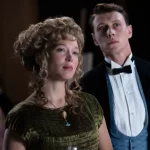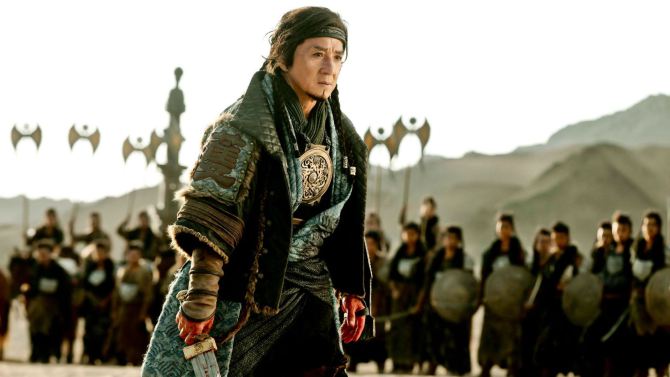20th Century Women: Don’t You Worry ‘Bout Me, by David Bax
“You get to see him out in the world as a person. I never will,” says Dorothea (Annette Bening) to Abbie (Greta Gerwig), who has befriended Dorothea’s teenage son, Jamie (Lucas Jade Zumann) in Mike Mills’ 20th Century Women. At its core, this is a movie about how the influences of various women can shape a good man. Simultaneously, though, as that bit of dialogue lucidly shows, it’s also a movie about the woman at the top of the pyramid, the mother. Dorothea is a unique and fascinating individual. It’s 1979 and, having had Jamie at the age of 40, she’s further apart in age and cultural reference points from her son than average but she strives to understand him all the more for it. Even Jamie describes her as “contemporary” and, instead of being dismissive of his differences, she hopes to see why he might, say, enjoy listening to The Raincoats. However, she is quick to shut down any attempts on Jamie’s part to understand more about her. She is at once the ideal mother and every mother.
Dorothea is a single mother to Jamie and they live in a house in Santa Barbara, two rooms of which they rent out to boarders. One of them is Abbie, a photographer for the local paper; the other is William (Billy Crudup) a manly New Age type who gets by doing odd jobs like fixing neighbors’ cars while undertaking an ongoing renovation of the house itself. The symbolism of this crew living in a work in progress is potent without being ham-fisted. The plot, inasmuch as it exists, kicks in when Dorothea asks Abbie and Julie (Elle Fanning), Jamie’s friend/crush, to aid her in making her son a more well-rounded young man. The plan is hatched around a modest kitchen table and, somewhat knowingly, has the feel of a domestic take on the heist movie. But these women’s life experiences include the bulk of the century thus far and Dorothea’s idea is not a bad one.
Though the primary timeline is simply understood to be the summer of 1979, 20th Century Women has the feel of being chronologically unstuck. Various characters narrate the film in their present-day voices but with the ability to clearly recall events from their pasts as well as their futures. Meanwhile, memories are shown at something like double speed and the freeway out of town becomes a rainbow Moebius strip where cars pulse with color and leave psychedelic tracers behind them.
Leaving Santa Barbara, or the desire to do so, becomes a bit of a motif. Mills never denigrates the city itself, which is picturesque and modestly upper middle class, but he makes it clear that the artistic and cultural signifiers that define the characters originate elsewhere. The authors and titles of the feminist essays and books Abbie and Jamie read are spelled out on the screen in bold text and the characters incessantly talk about and listen to punk, post-punk and proto-new wave music. There are at least three Talking Heads songs on the soundtrack and, after Mistress America, this is the second Gerwig vehicle in as many years to feature a defining moment set to a Suicide song.
The passion these folks display for the popular arts is conspicuously missing from their romantic pursuits. Sex here is transactional, often stilted and, as one character says, “Half the time, I regret it.” Jamie’s unrequited love for Julie fits this mold as well. Though it’s the type of plotline common to coming of age stories, Mills wisely avoids portraying it as romantic and Shakespearian. Instead, he treats it as an almost involuntary rite of passage, like losing your baby teeth.
In fact, in many ways, 20th Century Women is like a catalogue of the commonplace indignities of growing up—developing your own tastes, getting your ass kicked, realizing your mother is a human being—and it offers illustrations of proper and improper ways to handle these transitions, especially for a boy who hopes to contribute to a societal move toward gender equality (there’s even a passing, positive mention of Planned Parenthood). Mills brings specificity from his own experiences (though I can tell you that the line, “The people who love Black Flag hate the Talking Heads” was still more or less true nearly twenty years later, when I was in high school) but the particulars only make the events more relatable and universal. They should show this movie in schools, not only to help boys and girls relate to one another but also to make them all appreciate their mothers, who know a lot about the world even if they’ll never truly know their children.






























Hey, I don’t “hate” Talking Heads like how I hate most modern music. I just don’t really care for them 🙂